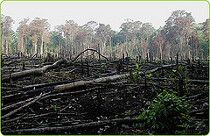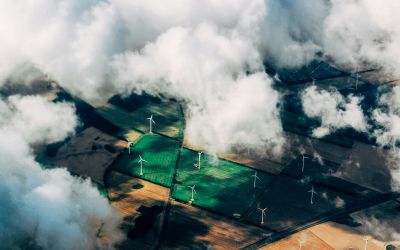UN-REDD for a collective agenda in COP16
An event to be run alongside the upcoming climate change convention, which involves the UN in conjunction with Reducing Emissions from Deforestation and Forest Degradation (REDD), intends to make the final push towards harmonising climate efforts.

 An event to be run alongside the upcoming climate change convention, which involves the UN in conjunction with Reducing Emissions from Deforestation and Forest Degradation (REDD), intends to make the final push towards harmonising climate efforts.
An event to be run alongside the upcoming climate change convention, which involves the UN in conjunction with Reducing Emissions from Deforestation and Forest Degradation (REDD), intends to make the final push towards harmonising climate efforts.
Failures in the 15th Conference of Parties (COP15) held last year, and inaction since, has meant that important issues such as deforestation and increasing renewable energy use, have not been effectively dealt with. As a consequence of political discrepancies and failure to negotiate, the real cost of climate change in terms of monetary, and natural, resources has rapidly increased.
The upcoming COP16, taking place in Cancun, Mexico from 29th November to 10th December will discuss these issues. It is hoped a treaty on international climate change will be formulated if rising costs are to be mitigated and sufficient action is to be taken to tackle the effects of global warming.
The UN-REDD Programme event will be held on 2nd December, forming part of the UN convention on climate change, and will push for synchronising normative international frameworks and organising joint events. It will include representatives from REDD+ countries, the World Bank, UN agencies and international organisations who will reinforce multifaceted partnerships that have emerged to support REDD+ efforts.
The programme will work towards coordinated action on an international, national and local level, with joint missions and sharing of information. The talks will highlight the meaningful partnerships being made, with a focus on the wise use of forest resources, considering all stakeholders and ensuring measurement, reporting and verification procedures. "Delivering as One: Partnerships for REDD+" is the title given to the upcoming talks.
This COP16 event will be convened by the Food and Agriculture Organisation (FAO), the United Nations Development Programme (UNDP) and the United Nations Environment Programme (UNEP). Another platform urging multilateral efforts-- the Forest Carbon Partnership Facility (FCPF), housed at the World Bank-- will also work in partnership with this programme.
During its fifth Policy Board meeting in Washington, D.C. from 4th to 5th November 2010, the UN-REDD Programme approved US$15.2 million in funding for national programmes in Cambodia, Papua New Guinea, Paraguay, the Philippines and Solomon Islands. The total US$51.4 million of funding will support national governments in preparing and implementing national REDD+ strategies. This involves the consideration and active involvement of all stakeholders, including indigenous people and other communities dependent on the forest for food, resources and their livelihood.
This funding is a move towards meeting requests for foreign aid made by poor countries in COP15. In helping them reach their green targets, it is anticipated that a collective agenda be reached. Executive Secretary of the UN Framework Convention on Climate Change (UNFCCC), Christiana Figueres, said climate aid is the "golden key" to progress in Cancun.
The UN-REDD Programme's five recently implemented pilot countries-- Democratic Republic of the Congo, Indonesia, Tanzania, Viet Nam and Zambia-have experienced good progress to date said Dr. Yemi Katerere, head of the UN-REDD Programme Secretariat, in an article on the programme's website, published 5th December 2010. Thanks to commitments and collaboration from donor countries-- Denmark, Norway and Spain-- effective ties are being improved. This supports the UN-REDD Programme's five-year strategy, which includes supporting REDD+ actions in all 12 pilot countries.
Deforestation is a global issue. Beyond its destructive impacts on biodiversity and the livelihoods of forest-dependent people, it accounts for roughly a fifth of global greenhouse gas emissions, according to the International Institute for Environment and Development (IIED). It subsequently contributes to an increasing threat of climate change.
Another event, Forest Day 4 will also be held in Cancun on the 5th December, and will focus solely on forest related issues. This will be hosted by the Government of Mexico, through the National Forestry Commission, the Collaborative Partnership on Forests (CPF) and the Centre for International Forestry Research (CIFOR).
The theme for Forest Day 4 is "Time to Act," highlighting the urgency of protecting the world's forests, the biodiversity they hold and the diverse groups of people that depend on them. The event will serve as a bridge between the 2010 International Year of Biodiversity and the 2011 International Year of Forests.
The overall plan for COP16 includes a fund to manage aid to poor nations, new ways to share clean technology and a strategy to protect tropical rainforests. The incorporation of REDD initiatives is increasingly important for the well-being of forest dependent communities and the UN-REDD Programme will help to demonstrate the relationship between all issues, and push for a collective agenda.
Author: Marianna Keen | Climate Action
Image: BlatantWorld.com/ Flickr






